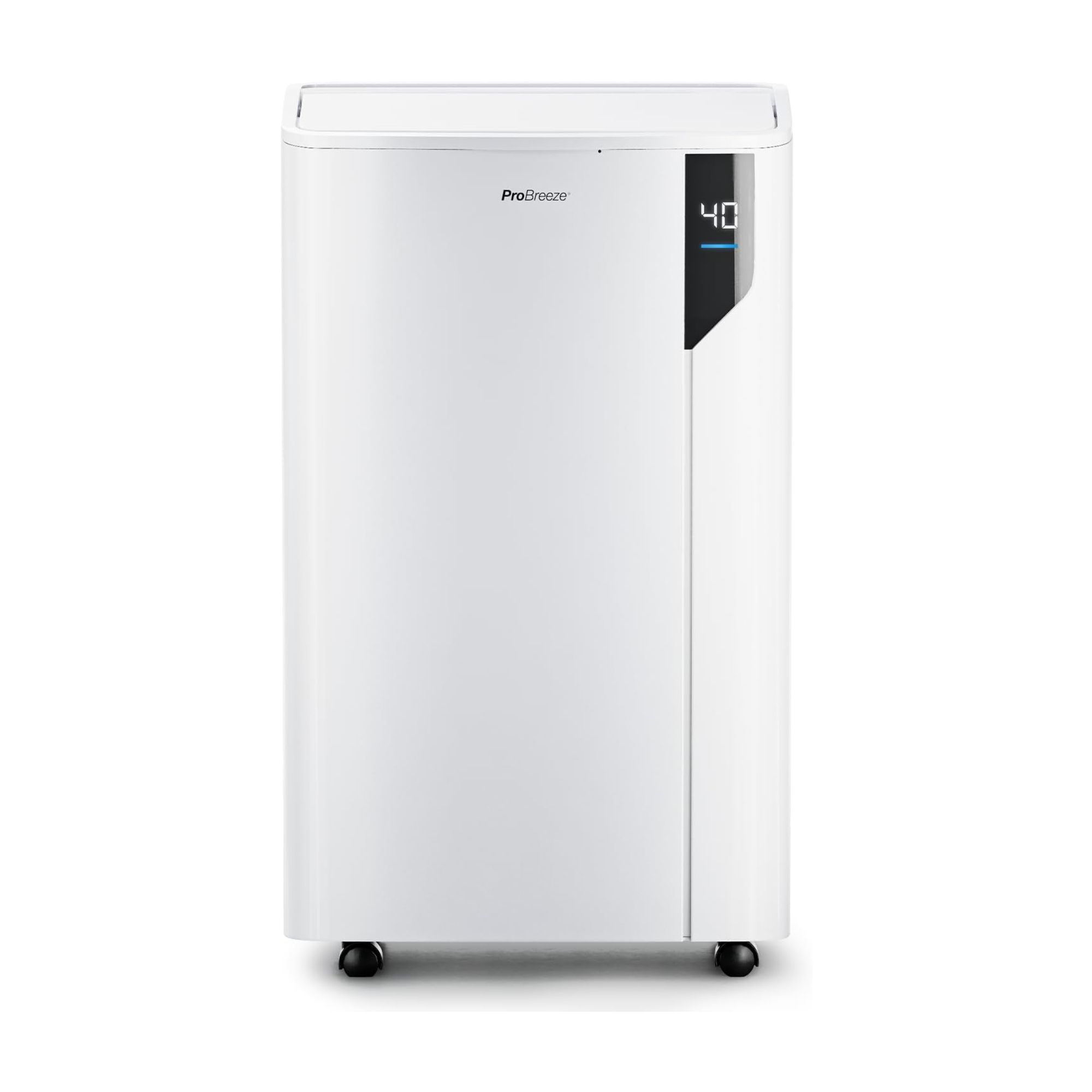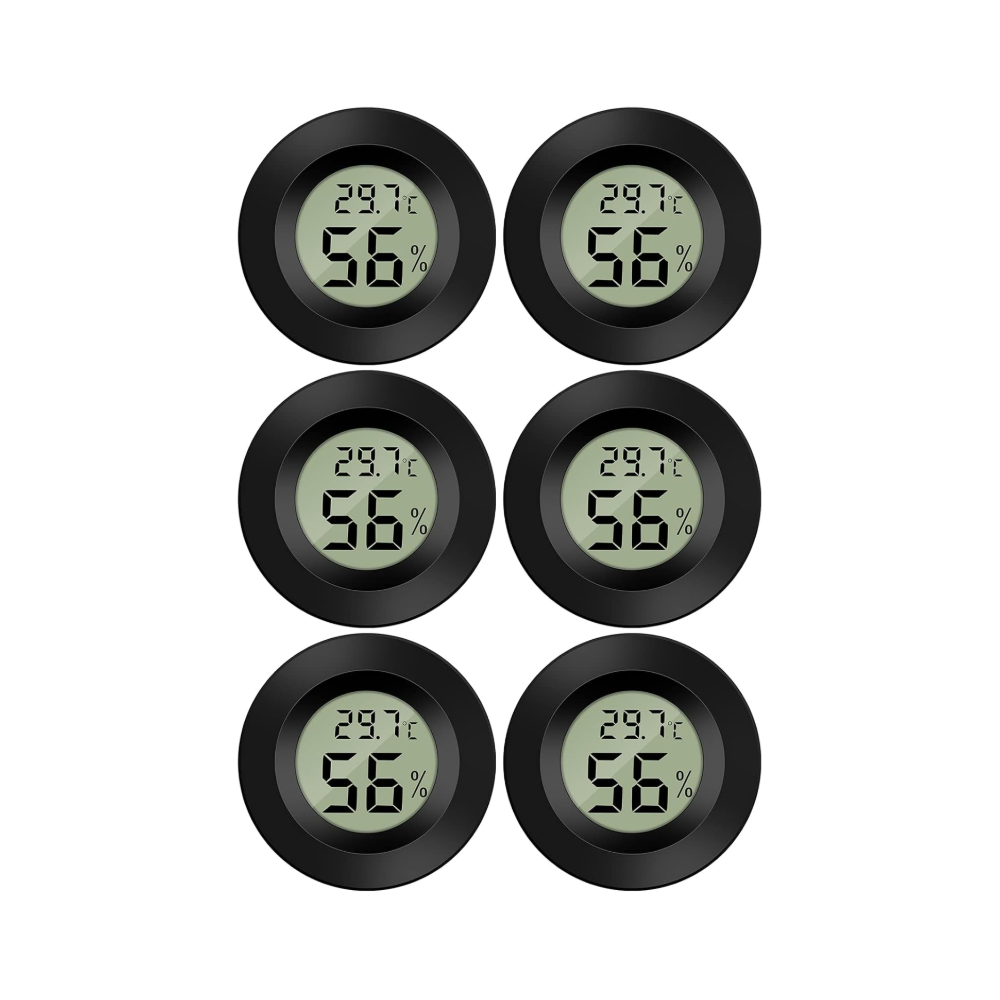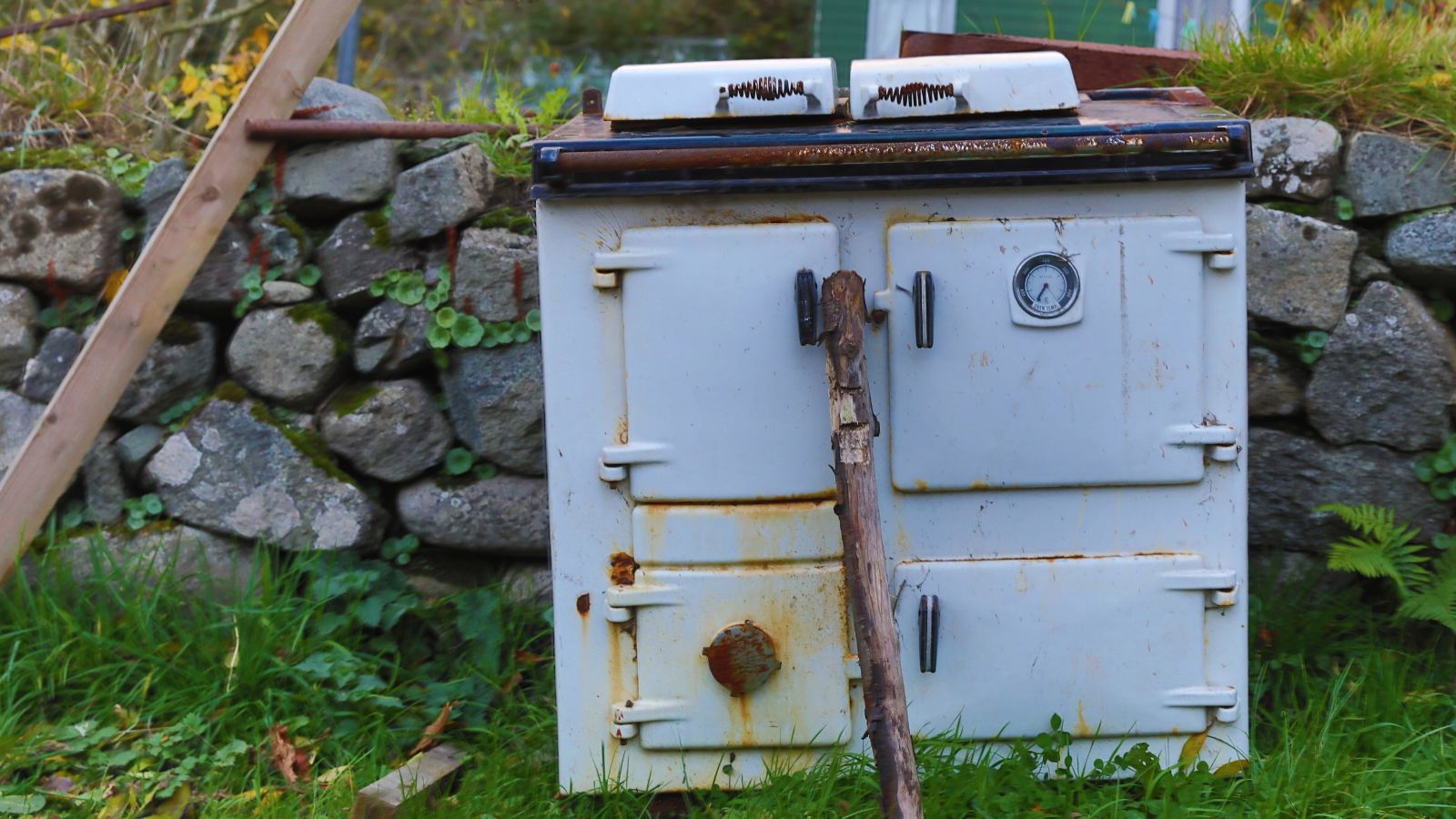How many dehumidifiers is too many? Experts reveal the risks to your home and health when you take it too far
Can you have too many dehumidifiers? Here's what the experts want you to know
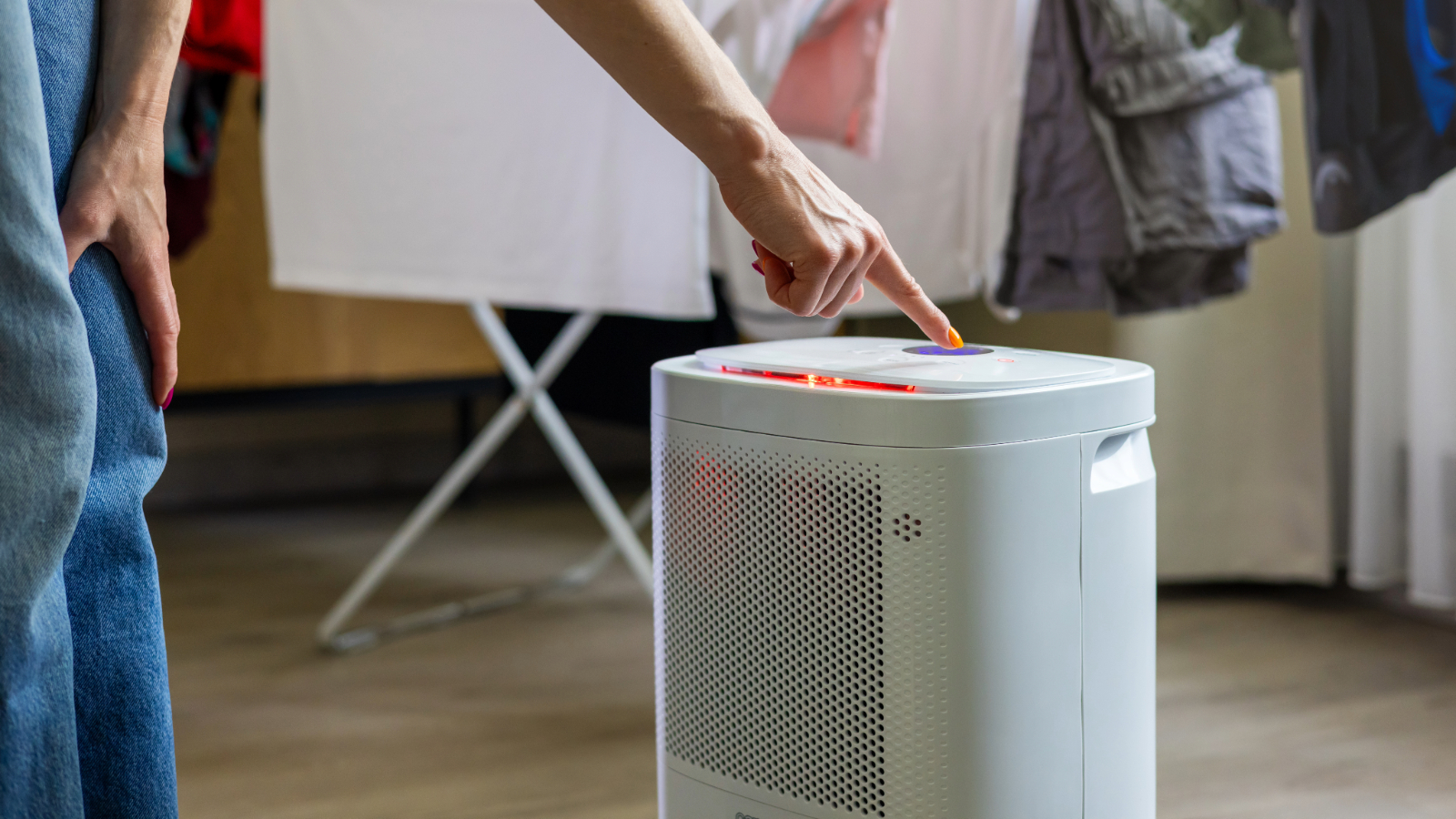
Bring your dream home to life with expert advice, how to guides and design inspiration. Sign up for our newsletter and get two free tickets to a Homebuilding & Renovating Show near you.
You are now subscribed
Your newsletter sign-up was successful
There are plenty of benefits to having a dehumidifier in your home – from preventing mould and mildew to improving overall air quality. With all these advantages, you might think it’s a good idea to collect as many as possible to maximise the effects – but can you actually have too many dehumidifiers?
According to experts, the answer is yes. While the benefits of the best dehumidifiers are undeniable, it is possible to have too much of a good thing. If you use more than you need, your indoor air could become overly dry, leading to damage in your home and irritation to your body.
To get to the bottom of how many dehumidifiers is too many and how it could impact your home and health, we spoke with experts.
Can you have too many dehumidifiers?
Yes, you can have too many dehumidifiers – most homes only need one per problem area.
"You might use one in a damp basement, another in a condensation-prone bedroom, or a utility room where you use a dehumidifier to dry clothes," explains Laura Bradbury, Head of eCommerce at Vonhaus."Even in a large home, two or three units is usually enough. Capacity matters more than quantity; a higher-capacity unit can often cover several rooms.”

Laura Bradbury is Head of eCommerce at online homeware and garden retailer Vonhaus, and is responsible for developing and growing the brand.
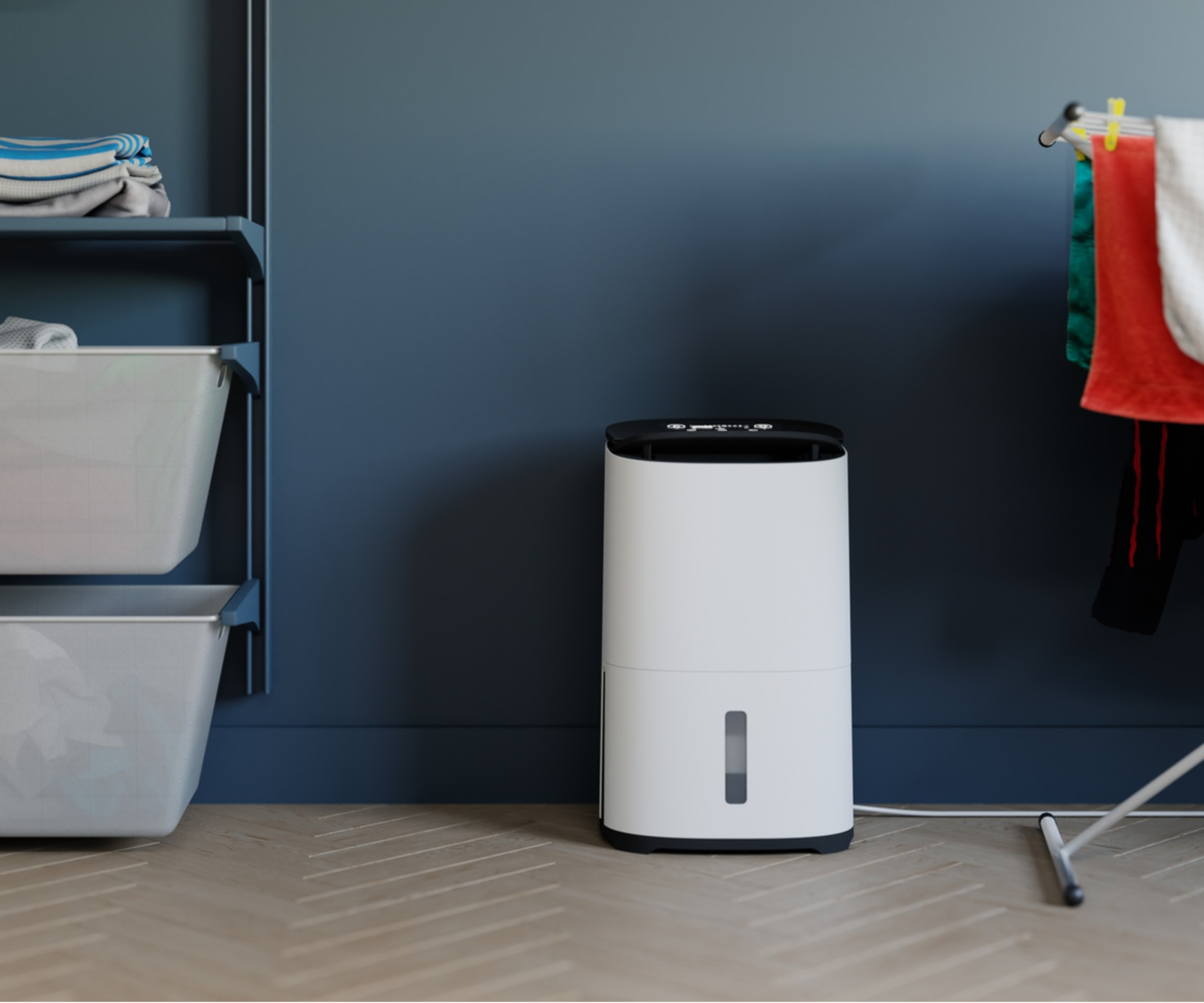
How can too many dehumidifiers affect your home?
It's widely accepted that excess humidity can wreak havoc on your home – warping wooden furniture and floors and creating the perfect environment for mould and mildew to thrive. However, having too many dehumidifiers can be bad news too.
"When indoor air becomes overly dry, it can start to affect natural materials like wood and paper," explains Michael Zohouri, Founder of Pyramid Eco. "You might see wooden floors and furnishings start to shrink or crack, and any books and paperwork could become brittle. Your houseplants will also suffer as they need moisture in the air."
Bring your dream home to life with expert advice, how to guides and design inspiration. Sign up for our newsletter and get two free tickets to a Homebuilding & Renovating Show near you.
Is this the same for both compressor and desiccant dehumidifiers? According to Michael, the answer is no. While desiccant models continue extracting moisture even when the air is already dry, compressors are generally self-limiting and become less efficient as the air dries out or cools down, which helps prevent overuse.
While it's not common for UK homes to become too dry (especially during the colder months), Michael confirms that it is possible, and running more units than necessary can cause problems. This is particularly true for smaller, well-sealed homes.
As a rule of thumb, Michael says to avoid letting humidity drop below 40%, which the ProBreeze 20L Premium Dehumidifier allows you to monitor via its display.

Michael Zohouri is the founder of Pyramid Eco with over a decade of retrofit experience. He specialises in tackling mould, damp and ventilation issues, alongside sustainable upgrades such as heat pump installations. His focus is on creating healthier homes that improve air quality and energy efficiency.
How can too many dehumidifiers affect your health?
We now know that having too many dehumidifiers can potentially cause issues for our home, but what about our health?
"Using multiple dehumidifiers in the same home can dry the air too much. Our airways need a bit of moisture in the air so that they can trap dust, allergens, and germs," explains Dr. Praveen Bhatia, NHS Respiratory Consultant.
"Very dry air irritates your airways, nose, eyes and skin, and will worsen breathing rather than helping. This is especially true if you suffer from asthma – dry air can trigger flare-ups because the airways become more sensitive."
What matters most is keeping the humidity balanced, which you can do by monitoring the environment with a humidity monitor (also known as a hygrometer) and aiming for a sweet spot of 40 to 50%. Some dehumidifiers may display this information automatically.
If your whole home is damp, Dr. Bhatia notes that it might be useful to have one unit per affected area, but usually one or two units are sufficient to stay in the normal humidity range.

Dr. Praveen Bhatia is an NHS Respiratory Consultant in the North West of England, and clinical advisor to White Coat SEO.
FAQs
Can having too many dehumidifiers damage the units?
While it won't do your dehumidifiers any damage by having too many, it certainly isn't efficient and can make your air uncomfortably dry, explains Laura Bradbury, Head of Ecommerce at Vonhaus.
She says: "It’s better to choose the right capacity for the space. That way you protect your home, your comfort, and your energy bills.”
Although there's no one-size-fits-all solution, choosing the right size dehumidifer for its intended use and space is the best place to start when making your product selection.
How much exposure should I have to a dehumidifier?
If humidity levels drop below 40%, the air can feel harsh and uncomfortable. Dr. Praveen Bhatia, NHS Respiratory Consultant, recommends running your unit for a few hours a day or setting it to stop automatically once the desired humidity level has been reached.
As we’ve learned, it’s definitely possible to have too many dehumidifiers, but that doesn’t mean we need to get rid of them altogether. They’re incredibly useful for preventing mould and mildew and for alleviating allergy and asthma symptoms – having them in excess is just one of the common dehumidifier mistakes.
As Laura Bradbury says, “The trick is balance – remove excess moisture without stripping the air completely.”
As a final point, remember that cleaning a dehumidifier is also essential to ensure it runs as efficiently as possible.

As Content Editor at Homebuilding & Renovating, Megan is passionate about providing expert-backed advice and creative inspiration to help readers transform their living spaces. Her love for DIY began while helping to renovate her parents’ family home, sparking a fascination with interiors, renovation, and design. More recently, she assisted with the renovation of her partner’s house in Bristol and is currently expanding her expertise through an Introduction to Home Improvement course. She joined the Homebuilding & Renovating team in 2025, having previously worked as a Staff Writer at PetsRadar and Beauty Assistant at Harrods.
